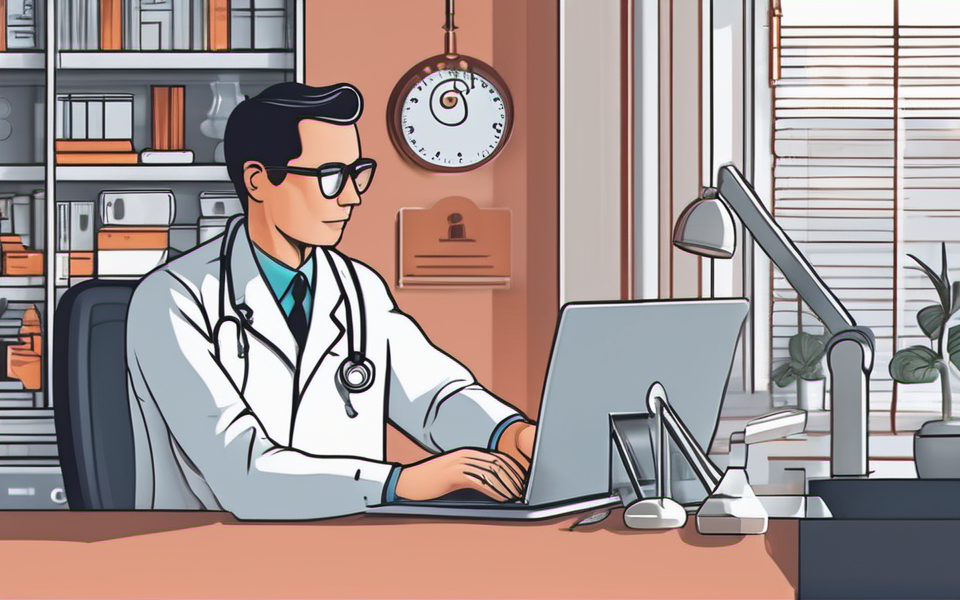You’re a doctor on call, treating a patient’s critical illness. Suddenly, your access to their electronic medical record is blocked. You can’t access crucial information like their medical history, allergies, or medications. This is a cybersecurity nightmare playing out in healthcare every day. But what if there was a way to prevent these scenarios?
Imagine a world where AI-powered threat detection systems instantly recognize and neutralize cyber threats before they impact patient care. What if advanced data encryption techniques secured patient information from unauthorized access, allowing medical professionals to collaborate seamlessly? This isn’t science fiction; this is the future of healthcare security.
A World Where Security is the New Standard
The healthcare industry faces constant threats: from ransomware attacks that cripple entire hospitals to data breaches exposing sensitive patient information. But technical advancements are revolutionizing how we protect this critical data.
The Power of AI in Healthcare Security
Artificial intelligence is emerging as a vital ally in the fight against cyber threats. AI-powered security systems learn and adapt, identifying patterns and anomalies that traditional security measures might miss.
How AI is transforming healthcare security:
- Real-time threat detection: AI algorithms can analyze vast amounts of data in real time, detecting suspicious activity and identifying potential threats.
- Proactive security measures: AI systems can automate responses to detected threats, preventing them from escalating and impacting critical services.
- Behavioral analytics: By learning normal network behavior patterns, AI can spot deviations that indicate malicious activity, flagging potential cyber threats before they strike.
Beyond AI: A Multi-Layered Security Approach
While AI is crucial, a robust healthcare security system requires a layered approach that encompasses multiple technologies and practices.
- Data Encryption: Encryption protects patient data, even if the system is breached. This involves transforming data into an unreadable format that can only be deciphered with a unique key, protecting sensitive information from unauthorized access.
- Multi-factor Authentication: This security practice adds an extra layer of protection by requiring users to provide multiple forms of identification, such as passwords, biometrics, or one-time codes, before accessing sensitive systems.
- Network Segmentation: Dividing a healthcare network into smaller, isolated segments limits the impact of a security breach. If one segment is compromised, the others remain unaffected.
- Security Awareness Training: Healthcare staff must be educated about potential cybersecurity risks, and how to avoid falling prey to phishing attacks or malware.
A Future of Secured Patient Data
The adoption of advanced technical solutions paves the way for a secure healthcare future. Hospitals, clinics, and research institutions are embracing these technologies to safeguard critical patient information and ensure continued delivery of quality healthcare services.
Transforming Patient Care Through Secure Systems
- Reduced Downtime: Secure systems ensure continuous access to patient information, reducing downtime caused by cyberattacks and improving clinical workflow.
- Enhanced Trust: Strong security measures instill patient trust and confidence in healthcare institutions, encouraging them to share sensitive information.
- Improved Compliance: Meeting evolving regulatory requirements for data protection becomes easier with robust cybersecurity solutions in place.
The Importance of Proactive Cybersecurity
The future of healthcare is a future secured by technology. Hospitals and healthcare providers must actively embrace and implement advanced cybersecurity measures to protect sensitive patient information.
Investing in security isn’t just an option; it’s a necessity. It’s about building a resilient healthcare system that can weather any cyber storm. By implementing the right security solutions, we can ensure that the future of healthcare is a secure one.
Key Takeaways
- AI is playing a crucial role in detecting and responding to evolving cyber threats.
- A multi-layered security approach that includes data encryption, multi-factor authentication, network segmentation, and security awareness training is vital.
- Proactive cybersecurity investment is essential for securing patient data and ensuring continued access to critical medical information.
- Adopting advanced technologies can create a safer and more resilient healthcare system for all.









